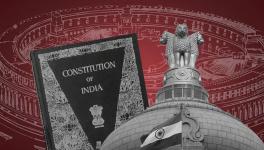Wrong at the Top - On Idealizing the Notion of the People
When the Aam Aadmi Party in Delhi decided to consult the "people" on whether it should form a government with Congress support, this was generally lauded as a new brand of honest politics, instead of being criticized as exhibiting poverty and indecisiveness of its leadership. Many saw in it an attempt to break with the top-down approach that has characterized the distribution of power in the Indian polity and is supposed to spawn authoritarianism and corruption.
A similar opposition to the top-down approach has often informed arguments in favour of the devolution of resources and power to panchayats: they being closer to the people, such devolution is seen as representing a deepening of democracy. Of course, these two instances are different, since the panchayats are elected bodies under the Constitution, to whom such devolution must be made, while the people consulted by the AAP in the mohallas have no particular locus standi. But what is common between these two cases is the invoking of the people to criticize a top-down approach,
or, put differently, to pose a dichotomy between the people as they are and the centre of power.
This view that the top-down approach should be eschewed and the people, as they are, should be entrusted with decision-making, is based on flawed thinking. It idealizes the people as they are, and sees them as a pure and undifferentiated mass that is entirely a repository of virtue. In fact,
however, the people in their empirical state of existence, are neither pure, nor pristine, nor homogeneous, nor free of the web of local-level power relationships. Consulting the people under these circumstances amounts to bowing before these power relationships; apotheosizing the people under these circumstances amounts to glorifying these relationships; and the decentralization of power and resources under these circumstances results not in an elimination of corruption, or even necessarily in a reduction in its level, but rather in a decentralization of corruption. Read More
Disclaimer: The views expressed here are the author's personal views, and do not necessarily represent the views of Newsclick
Get the latest reports & analysis with people's perspective on Protests, movements & deep analytical videos, discussions of the current affairs in your Telegram app. Subscribe to NewsClick's Telegram channel & get Real-Time updates on stories, as they get published on our website.
























